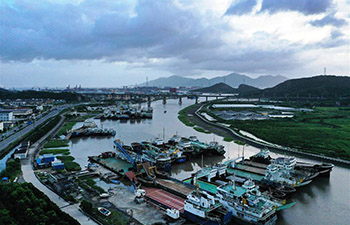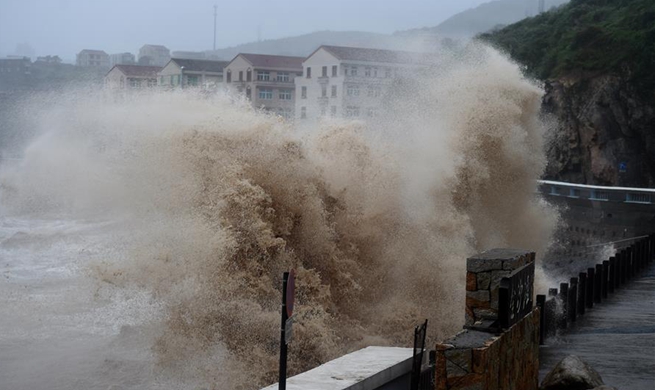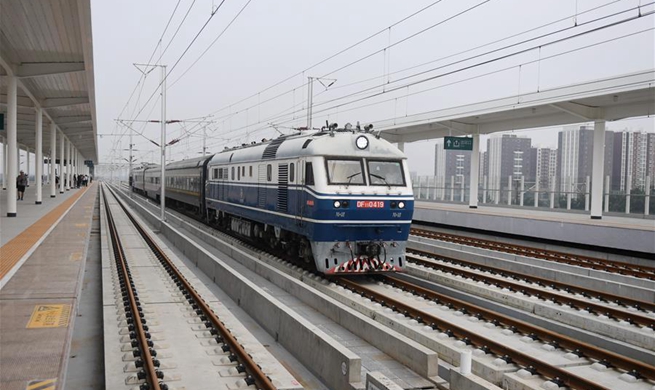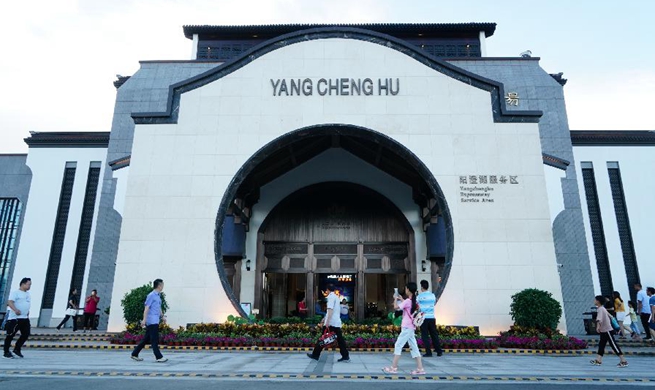by Eric J. Lyman
ROME, Aug. 9 (Xinhua) -- Italian President Sergio Mattarella will soon return to center stage, analysts said, pushed by the government of Prime Minister Giuseppe Conte as it teeters on the brink of collapse.
A long series of clashes between the nationalist, right-wing League and the anti-establishment, populist Five-Star Movement -- the two parties supporting Conte as prime minister -- have left the government stalled, unable to function.
The latest news is the possibility of a confidence vote on Conte; if fewer than half the members of parliament vote their support, it means Conte will have to step down. Though the law allows for a vote to take place quickly, analysts said it is unlikely to happen until the end of the month as MPs are away from Rome on their summer break.
Matteo Salvini, deputy prime minister and head of the League, has also called for snap elections before the end of the year.
All this puts the political ball into the court of Italy's reserved, low-key 78-year-old head of state.
"Right now, Mattarella has a few options," Alessandro Polli, professor of economic statistics at Rome's La Sapienza University, told Xinhua.
"He could look for a way to form a new government within the existing parliament, or he could declare intentions for a technocrat government that could gain enough support in parliament. He could also look to find a compromise between the existing parties, or try to find a spot on the calendar for new elections," Polli said.
"In the end, Mattarella will have to make the call and there are problems with every option," he added.
Mattarella was slow to give his support to what became the uneasy coalition between the League and the Five-Star Movement after last year's general election. But in the end, the combination of the two groups -- the parties are not natural allies -- was the only one that could garner enough votes in parliament.
In Polli's view, it was unlikely Mattarella could find some other combination of parliamentarians to form a new government.
A technocrat government led by a respected figure like outgoing European Central Bank President Mario Draghi, an Italian economist, is another possibility. That last happened in 2011, when former European Commissioner Mario Monti was appointed to head a technocrat government. But the situation then was much more dire, with Italy at risk of defaulting on government debt payments.
"I don't know if even Draghi would pull in enough votes" for a technocrat government to be approved, Oliviero Fiorini, a political affairs analyst with ABS Securities, said in an interview.
Fiorini also noted that a technocrat government charged with passing the 2020 budget would not take political considerations into account, meaning that the flat tax proposal championed by Salvini would probably not be included. The value-added tax that both the League and the Five-Star Movement want to avoid raising, would almost surely go up.
"I don't think Salvini wants to be labeled as the man who made the government fall if those are the consequences," Fiorini said.
Earlier this week Salvini said he wanted to get rid of three key government ministers, all from the Five-Star Movement. The local media speculated that could be the basis of a compromise, but Luigi Di Maio, the other deputy prime minister and head of the Five-Star Movement said the League would balk at that move.
That leaves the possibility of new elections, which generally take around 70 days to organize -- maybe more when most government officials are away on vacation as in August. The debate on next year's budget, one of the main jobs for the parliament, is set to begin in September and be completed by November. That makes it unclear when new elections could take place.
"It would be very difficult to organize new elections this year," said Franco Pavoncello, president of John Cabot University in Rome and a frequent political commentator. "It's impossible to vote on a new parliament while the budget debate is going on."













